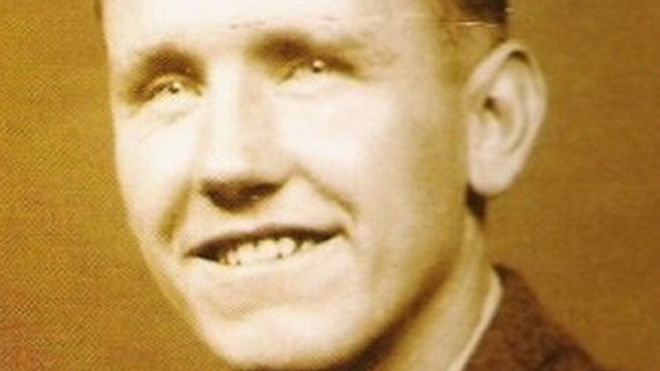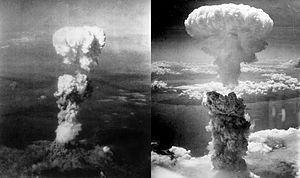Scottish survivor of the Nagasaki bomb, Alistair Urquhart, dies aged 97
Alistair Urquhart was a former prisoner-of-war. He was serving in Singapore with the Gordon Highlanders' Second Battalion during the Second World War when the island was captured by Japanese forces. He was among thousands taken prisoner and ended up being forced to build the notorious Burma-Siam railway. He was one of those put to work under atrocious conditions in what became known as "Hellfire Pass", where men had to cut through solid rock using hand tools and dynamite. It is estimated that some 13,000 Allied PoWs died on the railway.
After its completion he and other surviving prisoners were taken back to Singapore to be put on ships to Japan. The ship Mr Urquhart was on was torpedoed and sank and after five days adrift in a raft on the ocean he was picked up. He ended up in a labour camp 10 miles from Nagasaki where, on 9 August 1945, the second atomic bomb exploded. He recalled how he had heard a plane and looked up. Minutes later he described being blown across the pathway and feeling a big gust of hot air. This was the bomb going off.
This was the second of two atomic bombs dropped on Japan in the Second World War. The first was on the morning of 6 August 1945 when an American B-29 bomber, the 'Enola Gay', dropped the first atomic bomb on the Japanese city of Hiroshima. Between 60,000 and 80,000 people were killed instantly. Many more died of the long-term effects of radiation sickness. The final death toll was calculated at 135,000. As well as residents of Hiroshima, the victims included Koreans who had been forced to come to Japan as labourers, and American prisoners-of-war imprisoned in Hiroshima. On the morning of 9 August, the second, bomb was dropped on Nagasaki. About 40,000 people were killed instantly and a third of the city was destroyed. The final death toll was calculated as at least 50,000. The Japanese surrendered nine days after the first blast, ending World War Two
Alistair Urquhart's story is a remarkable one and he survived slave labour in Prisoner of War camps, being torpedoed and left adrift on the ocean and then the atomic bomb being dropped on Nagasaki. He was aged 97 when he died peacefully last Friday, surrounded by family and friends, in the care home he had only moved into in February having looked after himself up to the age of 96.


- Douglas MacQueen's blog
- Log in to post comments





